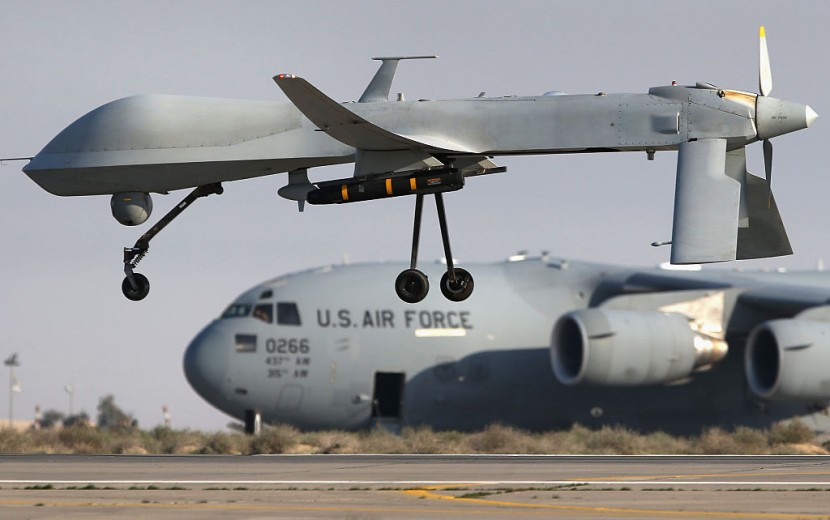
The US military intercepted multiple aerial drones aimed at its personnel stationed in Iraq early Wednesday morning, according to the Pentagon.
US officials are on high alert for potential attacks on American forces in the Middle East as the conflict escalates, as per Politico.
Iranian-Backed Militias Target US Bases Amidst Middle East Battle
Central Command issued a statement stressing their vigilance in monitoring Iraq and the surrounding region, affirming that US forces will protect US and coalition personnel against any potential threat.
The attacks specifically targeted US bases are believed to be linked to Iranian-backed militias in Iraq, responding to American support for Israel.
The Islamic Resistance in Iraq, an amalgamation of Iranian-backed militias, has claimed responsibility for these attacks, vowing further operations against the "American occupation."
The recent Hamas-Israel conflict exacerbated the ongoing tensions, bringing into focus the situation's fragility. While much attention has been directed towards Hezbollah, a potent ally of Hamas in Lebanon, it is essential to recognize that Iranian-backed militias in Iraq are also making ominous threats against US facilities due to their support for Israel.
Ahmad "Abu Hussein" al-Hamidawi, the leader of the Kataib Hezbollah militia, declared their readiness to launch "qualitative strikes" against the US and its interests if they intervene in the ongoing conflict. Al-Hamidawi also threatened to target Israeli installations.
In the aftermath of a devastating explosion at a Gaza hospital that killed hundreds, these Iranian-backed militias pointed fingers at the US and its backing of Israel, asserting that the US presence in Iraq should end. Hamas attributed the hospital explosion to an Israeli airstrike, whereas Israel claims it resulted from a misfired rocket by Palestinian militants.
The situation is undoubtedly delicate and potentially destabilizes the region further, according to VOA News.
Drone Attacks and Iran-Backed Groups
A US defense official confirmed the drone attack on the al-Asad military base in western Iraq. Another Iranian-backed group, Tashkil al-Waritheen, claimed responsibility for a second drone attack on the al-Harir airbase in northern Iraq. US authorities have not yet responded to this claim.
Meanwhile, an intercepted drone was reported to have crashed in an open area near the village of Batas in the semi-autonomous Kurdish region of northern Iraq. Furthermore, Iran-allied groups in Iraq have announced the formation of a "joint operations room" to assist Hamas in its ongoing conflict with Israel.
This development indicates the broader regional implications of the current situation. While some Iranian-backed factions in Iraq are more deeply intertwined with Iraqi politics and are thus more cautious, others are purely militant and tend to take direction from Iran, potentially escalating regional conflicts.
Lahib Higel, a senior analyst at the International Crisis Group, suggests that the Iraqi groups aligned with Iran and Hamas may initially assume a supporting role, given their geographical separation. However, the situation could evolve rapidly if the Hamas-Israel conflict intensifies or prolongs.
Renad Mansour, a senior research fellow at Chatham House, points out the divided nature of Iran-backed groups in Iraq, some deeply entangled in politics. In contrast, others are militant and beholden to Iran's influence.
As the situation unfolds, it is critical for the international community to monitor the developments closely and remain vigilant, ensuring the safety and security of US and coalition forces in Iraq and the wider region.
The interplay of regional actors and the ongoing Middle East conflicts has created a volatile environment, necessitating a carefully calculated response to prevent further escalation and instability in the region, AP News reported.
© 2026 HNGN, All rights reserved. Do not reproduce without permission.








